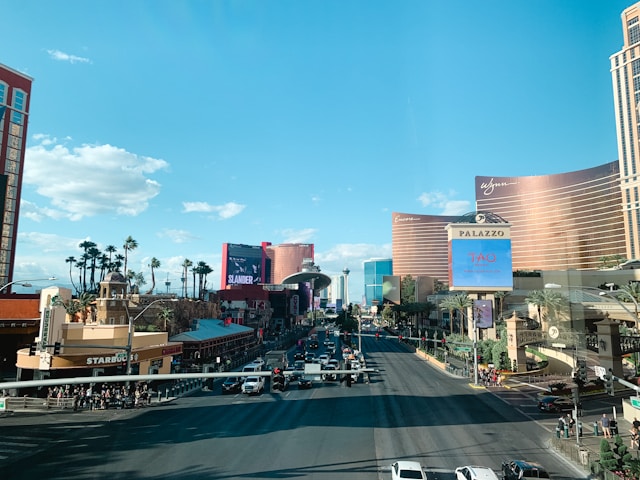Las Vegas, Nevada, renowned for its vibrant nightlife, entertainment options, and bustling tourist industry, presents a lucrative opportunity for Airbnb and other short-term rentals (STRs).
However, the city’s popularity and dense urban environment mean that STR operations are subject to specific regulations designed to balance the needs and quality of life for both residents and visitors. This guide provides a detailed overview of the short-term rental regulations in Las Vegas, offering Airbnb hosts crucial insights into how to navigate these rules effectively and maintain a successful rental operation.
Overview of Short-Term Rental Regulations in Las Vegas
Las Vegas has established a complex regulatory framework for STRs, with strict rules that vary depending on the specific area within the city and county. The goal is to integrate STRs into the community responsibly, ensuring that they do not disrupt local neighborhoods or compete unfairly with traditional lodging businesses.
Licensing and Registration
- Business License and Permit: All STR operators in Las Vegas are required to obtain a business license and a special use permit. This involves a detailed application process that includes proof of insurance, a floor plan of the property, and, in some cases, approval from neighbors.
- Zoning Regulations: STRs are only allowed in certain zoning districts. Hosts must ensure their property is located in an area zoned for short-term rentals. Some residential areas are completely off-limits to STRs to maintain their residential character.
Tax Obligations
Airbnb hosts must comply with tax regulations that include:
- Transient Lodging Tax: A tax levied on all rental transactions that are less than 30 days. This tax is similar to what hotels charge and is used to fund local tourism and infrastructure projects.
- Sales Tax: In addition to the lodging tax, state and local sales taxes must also be collected and remitted by the host.
Hosts can register with the Nevada Department of Taxation to manage these tax obligations, and many use Airbnb’s automated systems, which can collect and remit taxes on behalf of the hosts.
Top 100 Airbnb Rental Markets

Instantly compare the top 100 short-term (Airbnb) rental markets in the US
Safety and Compliance Standards
- Safety Inspections: STR properties may be subject to safety inspections to ensure they meet all local health and safety standards. This includes proper fire safety measures, such as smoke detectors and fire extinguishers, and general building safety.
- Insurance Requirements: Adequate liability insurance is required to protect both the host and guests. The city specifies minimum coverage amounts to ensure that all potential liabilities are covered.
Community Relations
- Noise Ordinances: Las Vegas enforces strict noise ordinances, particularly in residential areas. STR hosts must ensure that their guests do not disturb the neighborhood peace, especially during nighttime hours.
- Parking Regulations: Adequate parking must be provided at the STR property. In areas where parking is limited, hosts may need to make special arrangements or limit the number of guests per rental.
- Good Neighbor Policy: Hosts are often required to provide contact information to neighbors and make themselves available to address any issues promptly. This policy is designed to maintain good relationships within the community and resolve any disputes amicably.
Steps to Compliance
To ensure your Airbnb operates within the legal framework of Las Vegas, follow these steps:
- Obtain Necessary Licenses and Permits: Begin by applying for a business license and the appropriate permits through the City of Las Vegas or Clark County, depending on your property’s location.
- Register for Tax Collection: Set up with the Nevada Department of Taxation to collect and remit all required taxes. Utilize Airbnb’s tax collection features if available to simplify the process.
- Prepare Your Property: Ensure your property meets all safety and zoning requirements. Address any issues identified during the inspection process.
- Educate Your Guests: Provide guests with clear house rules regarding noise, parking, and general conduct. Ensure these guidelines comply with local ordinances and are communicated effectively to guests.
- Engage With the Community: Keep lines of communication open with neighbors and community members. Being proactive in addressing concerns can prevent complaints and foster a positive environment.
Resources for Airbnb Hosts in Las Vegas
- City of Las Vegas Official Website: Offers comprehensive information on STR regulations, licensing procedures, and community guidelines.
- Clark County Official Website: Provides resources for hosts operating outside the city limits but within the county.
- Nevada Department of Taxation: Gives guidance on tax registration and compliance.
Understanding and adhering to these regulations will ensure that Airbnb hosts in Las Vegas can not only provide a safe and enjoyable stay for their guests but also contribute positively to the local community. Whether you are just starting out or looking to refine your existing operations, this guide serves as a crucial resource for navigating the complexities of STR laws in Las Vegas, NV.


